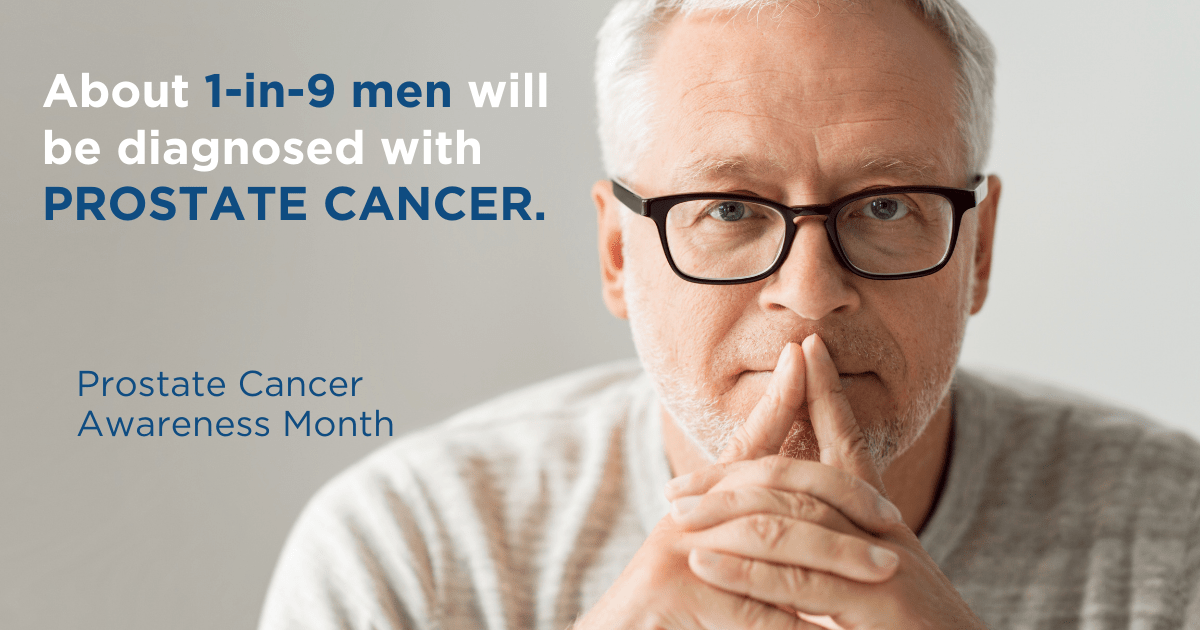Prostate cancer is the most diagnosed form of non-skin cancer among men in the United States and the second leading cause of cancer-related death among the same group. The month of September has been designated to raise awareness about this very common cancer that affects so many lives.
Risk Factors
While all men are at risk for prostate cancer, the most common risk factor for developing the disease is age. The cancer is typically diagnosed in men that are 65 and older. African American men are at higher risk of developing the disease and dying from the disease than men of other races. A family history of one or more close relatives with prostate cancer also puts men at high risk.
Symptoms
In its early stages, prostate cancer may not present any signs or symptoms. Once symptoms do begin to show, they may include the following:
- difficulty urinating
- frequent urination throughout the day and night
- pain while urinating
- blood in urine or semen
- bone pain
- unintended weight loss
Because prostate cancer is usually a very slow-growing cancer, early detection and treatment of the disease before symptoms start to show may not improve men’s health or help them live longer. It is important to discuss your risk factors and screening options with your Amberwell primary care provider.
Screening for Prostate Cancer
Although there is currently no standard or routine test to screen for prostate cancer, two tests that are commonly used to detect abnormalities are a prostate specific antigen (PSA) test and a digital rectal exam (DRE). Both of these tests are available at Amberwell Atchison and Amberwell Hiawatha. If your screening test results come back as not normal, your provider may recommend that you get a biopsy of your prostate to determine if you have cancer.
If recommended by your Amberwell primary care provider, annual prostate cancer screenings are covered as a part of the Medicare Wellness Program. Screening for prostate cancer is also covered by most private insurance as a preventive measure if you are considered high risk.



